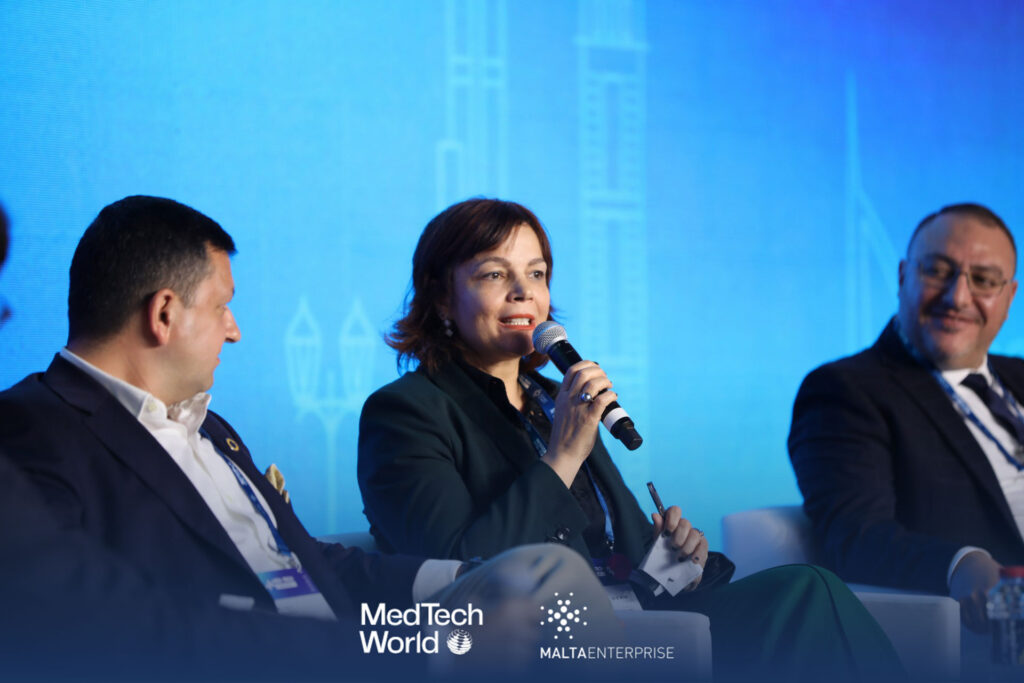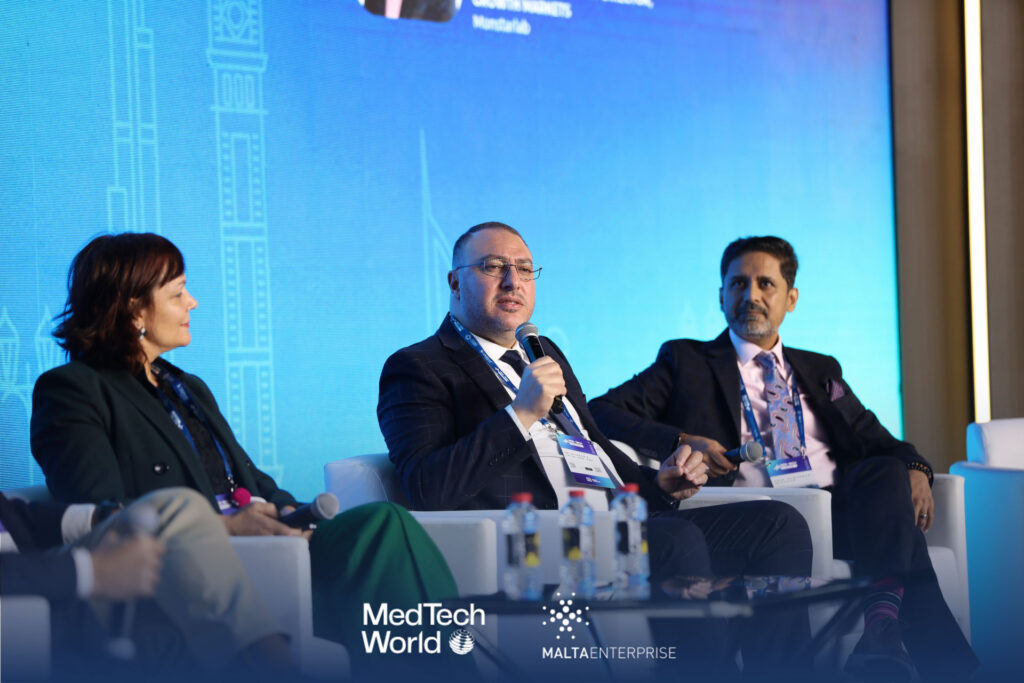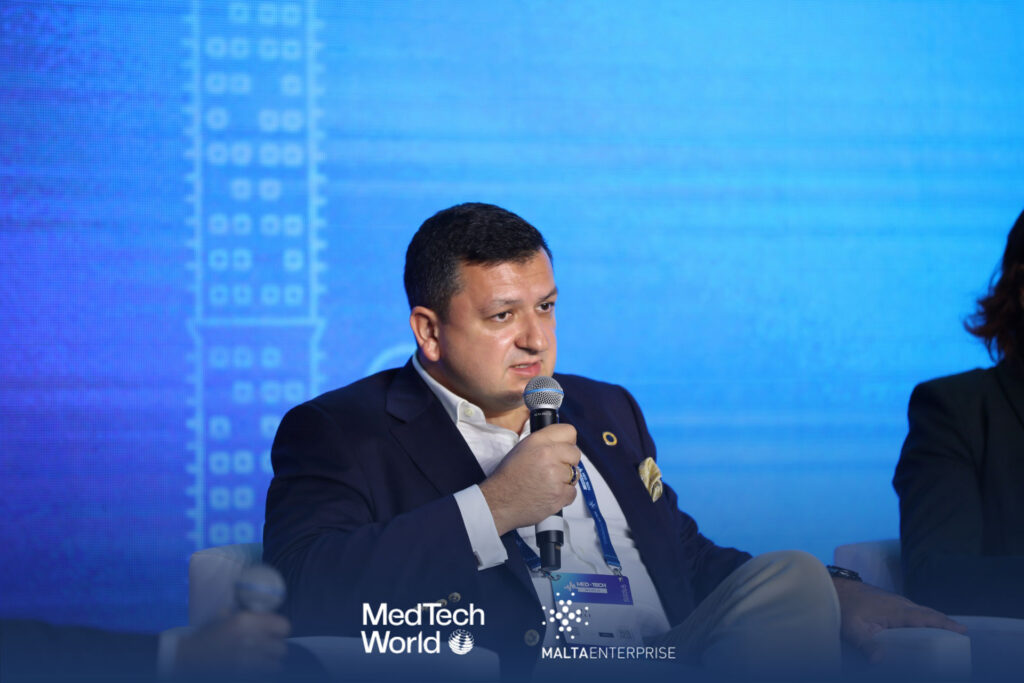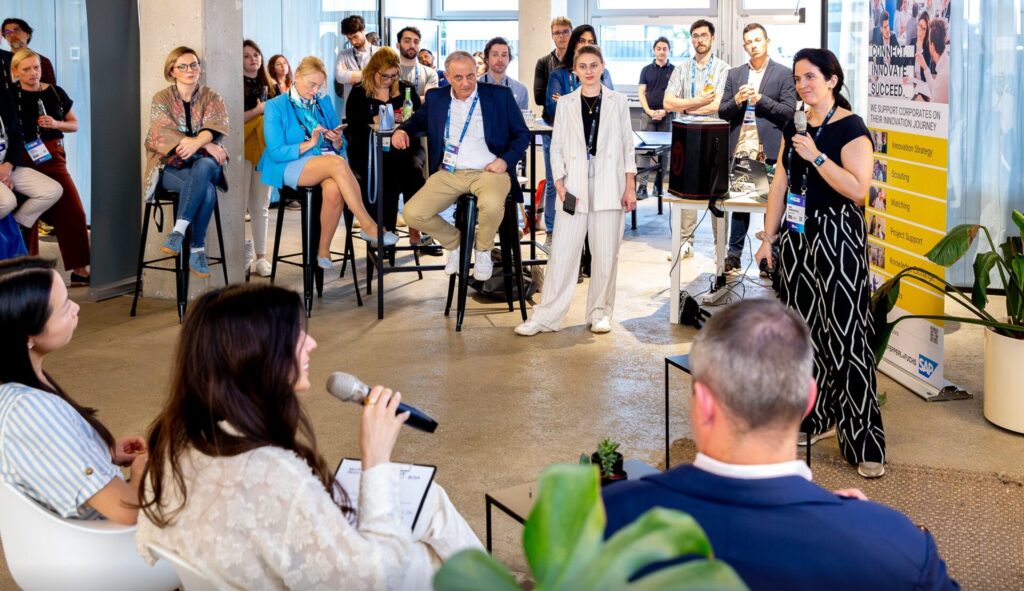
Matthew Calleja
25th March 2024
MedTech experts discuss top 3 Go-To-Market strategies
“Global commercialisation? I don’t think it exists. At best, we can aim for a multi-location strategy. Even giants like Amazon reign supreme in only 40 countries.”
– Pilar Fernández Hermida, Founder at i-Expand
Navigating the labyrinth from local innovation hubs to global market dominance proves a Herculean task for startups in MedTech and beyond. What makes a commercialisation strategy successful, and how can investors evaluate risks beyond technology? What insights can be gleaned from team expertise and partnerships?
From local hubs to global markets
These questions and more were discussed at length during the panel titled Home Ground to Global Markets: Go-To-Market Strategies in MedTech, held during the MedTech World Dubai Roadshow last February.
It was moderated by Mark Dagher, Consultant at Frost & Sullivan. Dagher brings a wealth of experience as an accomplished international healthcare and pharmacoeconomic professional, with over 9 years of demonstrated global expertise and leadership across both public and private sectors.

Dagher was joined by the following experts for a truly riveting panel:
- Dr. Ali Tinazli, CEO at lifespin GmbH;
- Pilar Fernández Hermida, Founder at i-Expand;
- Dr. Hamzeh J. Awad, Health Informatics Research Chair at Higher Colleges of Technology;
- Engr. Muhammad Mudassar, Strategic Engagement Director (Growth Markets) at Monstarlab.
Dagher set the stage for discussing market strategy adoption in the MedTech sector. He initiated the conversation by delving into the pivotal role of market trends and dynamics in influencing the adoption of local market standards, especially during the transition from domestic to international markets.
Dagher prompted the panellists to share insights on the key factors contributing to successful commercialization strategies in MedTech companies, particularly concerning product launches and scaling efforts. Furthermore, he addressed investor concerns regarding risk assessment in MedTech companies and startups looking to scale up.
Comparing market strategies against time
Market strategies exhibit remarkable variation across different markets, timespans, and environmental and circumstantial conditions.
In retrospect, Dr. Ali Tinazli described observing a distinct shift during the post-pandemic period, where hospital systems opened up to novel technologies. He noted a surge in the MedTech provider space, with two key considerations emerging
Firstly, the imperative to deeply understand patient needs, particularly in high-speed post-operative scenarios. Secondly, the significance of forming alliances with like-minded partners, all committed to tackling shared technological challenges.
“Absolutely, now there’s a surge in the MedTech provider sphere, which is quite fortunate. Understanding the patient’s needs is paramount, and forging alliances with compatible partners is key to tackling common technological hurdles.”
Rethinking commercialisation in MedTech
Pilar Fernández Hermida brought a thought-provoking perspective to the conversation, urging a reconsideration of the concept of commercialization, particularly in the healthcare sector.
She emphasised the complexity of healthcare markets compared to traditional retail sectors, where standard business strategies often fell short. Hermida challenged the notion of global commercialization, arguing instead for a multi-location strategy tailored to diverse market needs.
“Global commercialisation? I don’t think it exists. At best, we can aim for a multi-location strategy. Even giants like Amazon reign supreme in only 40 countries.”
Highlighting the importance of market-driven research, Hermida stressed the need for founders to assess market viability and adaptability. She posed two critical questions: Were they truly needed in the market, and could they sell their product effectively?
Furthermore, Hermida raised crucial questions about understanding the customer and the challenges of localization, particularly in delivering tech-enabled services across different markets.
Knowing your market


Awad emphasised the importance of understanding market dynamics, identifying gaps for entry, and assessing the readiness of target markets for technology adoption or transformation. He underscored the significance of tailoring strategies to meet the diverse needs of patients, healthcare professionals, and healthcare systems.
Awad illustrated the concept of “creating your own niches” by sharing his experience of introducing innovative solutions ahead of their time and illustrated the critical role of timing and networking in successful market penetration.
“In a crowded market, finding a niche is about pinpointing the needs of patients, healthcare professionals, and the overall healthcare system. Your solution must convincingly address these needs, focusing on a patient-centred approach and adapting to evolving market dynamics.”
Offering a complimentary insight in alignment with Awad, Mudassar, highlighted the challenge of effectively translating technological capabilities into market needs. He demonstrated the primacy of customer preferences in driving market adoption, citing an example of how traditional practices could persist despite technological advancements.
Mudassar underscored the importance of market research and understanding customer behaviour as pivotal factors in choosing viable markets for expansion.
“Having the technology doesn’t automatically imply market demand. Market adoption hinges heavily on customer preferences. This distinction is crucial in selecting the right market to enter and distinguishing where you want to invest your efforts.”
Keep up with everything MedTech!
Connect with MedTech World to stay in the loop with our conference keynotes, panels, and MedTech updates. Keep yourself informed by saving our news page for rapid updates, following us on social media, and subscribing to our YouTube channel for an exclusive view of the future of healthcare technology!
Make sure to mark your calendars for our upcoming shows:






